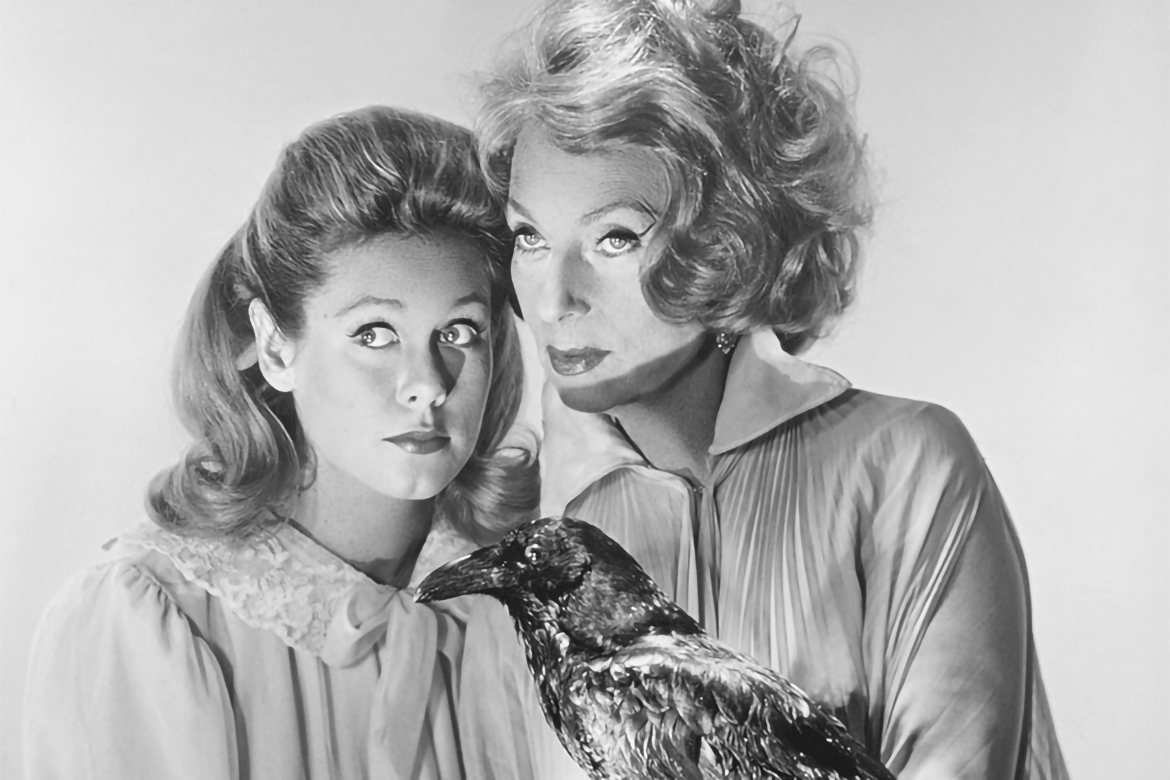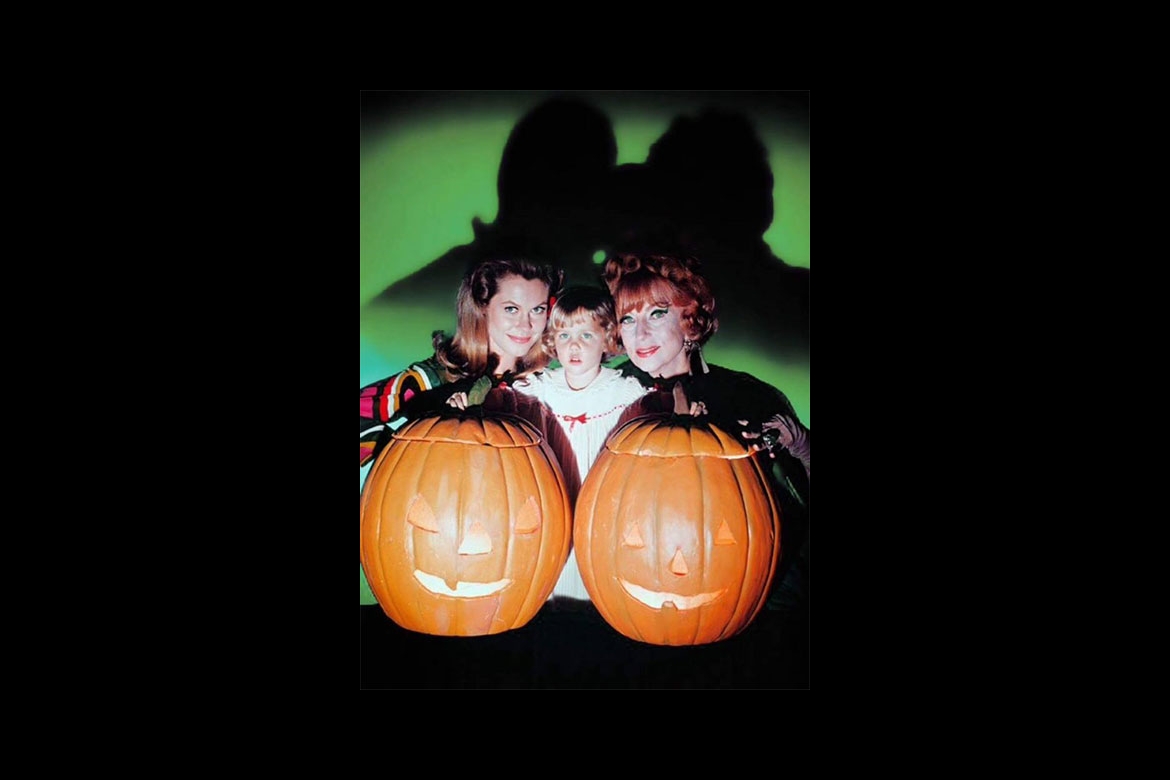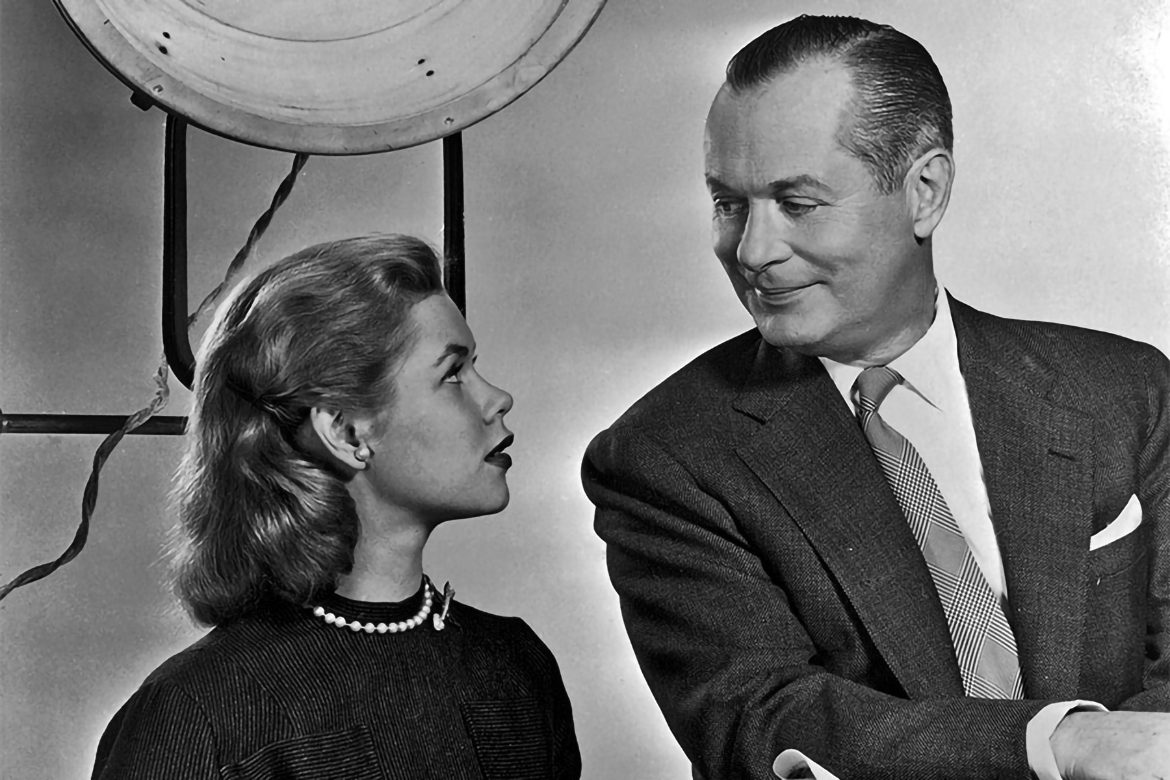The Legend of Elizabeth Montgomery
In a special Halloween offering, writer Herbie J Pilato, author of several books on beloved Emmy-nominated actress Elizabeth Montgomery, recalls some of her most memorable spooky roles.
It’s been more than two decades since beloved Bewitched star Elizabeth Montgomery succumbed to colorectal cancer on May 5, 1995 at only 62 years old.
Before and after playing her most magical persona as Samantha “the-witch-with-a-twitch” Stephens on the hit 1964-72 ABC-TV series (which last year celebrated its 50th Anniversary), Montgomery appeared in over 200 roles.
Feature films like The Court-Martial of Billy Mitchell, Who’s Been Sleeping In My Bed? and Johnny Cool (directed by her third husband and future Bewitched producer William Asher), were followed by Emmy-nominated performances in classic TV shows such as The Untouchables, and the ground-breaking TV-movies A Case of Rape (1974) and The Legend of Lizzie Borden (1975), which this year marks its 40th Anniversary.
Husband and wife actors William Daniels and Bonnie Bartlett had known Elizabeth and her second husband, the troubled, alcoholic actor Gig Young, from their days in New York when each guest-starred on Robert Montgomery Presents, the 1950-57 anthology TV series hosted by her father, a famed film actor of the 30s and 40s.
Daniels, best known for TV stints on St. Elsewhere, Boy Meets World and Knight Rider (lending his voice for the K.I.T.T. supercar), appeared with Elizabeth in A Case of Rape.
Bartlett worked with both Elizabeth and Daniels in The Legend of Lizzie Borden, directed by Paul Wendkos, who later guided Elizabeth through the 1979 TV-movie, Act of Violence, in which she portrayed another non-Samantha-like as a TV news writer whose liberal views sparked a brutal street gang attack.
Lin Bolen Wendkos, widow to Paul, believed Elizabeth took such dramatic departures with her post-Bewitched roles because “she earned the opportunity to do so by playing a very commercial [character] like Samantha. In her mind, she may have wanted to give something more of the talent that she was holding back.
"My husband worked with a lot of interesting actresses and Elizabeth was definitely one of his favorites. She was a magnetic personality to look at.”
Of the Lizzie Borden part in particular, Bolen said, Elizabeth “captured that character in a way that I don’t think anyone else could have. She became that person she was playing. How many actresses on TV ever did that? Not many. She gave herself to that murderous spirit, and she did not stop until the end.
"Paul didn’t just stage a scene and then instruct an actor to walk through it. He let the actor find their moment before he staged the scene and Elizabeth played into that very well.”
Bonnie Bartlett described Elizabeth as “an extraordinary actress. She was a major TV-star and she could have done almost anything. She was very serious about her work and extraordinarily professional. Every little detail was important to her.
"She was also a very cheerful person. She came to work with a good attitude, a really good attitude. She really enjoyed being an actress.
"And I do know that Paul [Wendkos] adored her, and loved working with her. He had that same kind of enthusiastic spirit that she had. The [Lizzie Borden] movie was one his favorite things that he had ever done.”
Acclaimed actor Ronny Cox, who costarred with Elizabeth in A Case of Rape, added, “Elizabeth didn’t want to walk around for the rest of her life being Samantha.”
Robert Foxworth, her fourth and final husband, once said that she was “thrilled” with the idea that she surprised her fans and detractors with her Emmy-nominated performances like that of Lizzie Borden.
To have viewers accept her in such an un-Samantha role and subsequently respect the theatrical diversity that she would bring to such a part as an accomplished actress was “probably one of her greatest victories in life.”
Robert Montgomery, however, wasn’t the least bit “thrilled” with Elizabeth’s portrayal of Borden, believing the storyline cut a little too close to home.
Borden despised her father and step-mother and brutally murdered them while, by the time that movie aired, Elizabeth had still not fully forgiven Robert for divorcing her mother, actress Elizabeth Allen, for her step-mother and heiress Elizabeth “Buffy” Harkness.
Upon learning his daughter accepted and then relished in portraying the historic true-story role, Robert blasted her with a sardonic, “Oh, you WOULD!”
Into this mix, Robert was a conservative Republican who had grown increasingly resentful of his liberal Democrat daughter’s views and success. He never fully-believed she paid her professional dues, and felt she had achieved fame much too easily via their family name which he worked hard to retain.
After his father, Henry Montgomery (a rubber company executive) had committed suicide Robert had toiled as a railroad mechanic and an oil tanker to salvage the family honor before he re-found wealth and prestige by way of Hollywood.
The infant death by meningitis of his first daughter, Martha, born before Elizabeth, had initially ignited his devotion to her, but ultimately did very little to close an emotional distance between him and Elizabeth.
As a result, Elizabeth spent a good deal of her pre-and-post-Bewitched life seeking her father’s approval, only to further incite his fury by later surpassing his popularity with her portrayal of Samantha and subsequent edgier roles like the lead in The Legend of Lizzie Borden.
........
Herbie J Pilato is a writer/producer who has authored a number of classic TV companion books, including Twitch Upon A Star: The Bewitched Life and Career of Elizabeth Montgomery, and The Essential Elizabeth Montgomery: A Guide To Her Magical Performances, both of which are based on his exclusive interviews with the beloved actress.
He is also the Founder and Executive Director for the Classic TV Preservation Society, a formal 501(c)3 nonprofit organization dedicated to the positive influence of classic TV programming.











